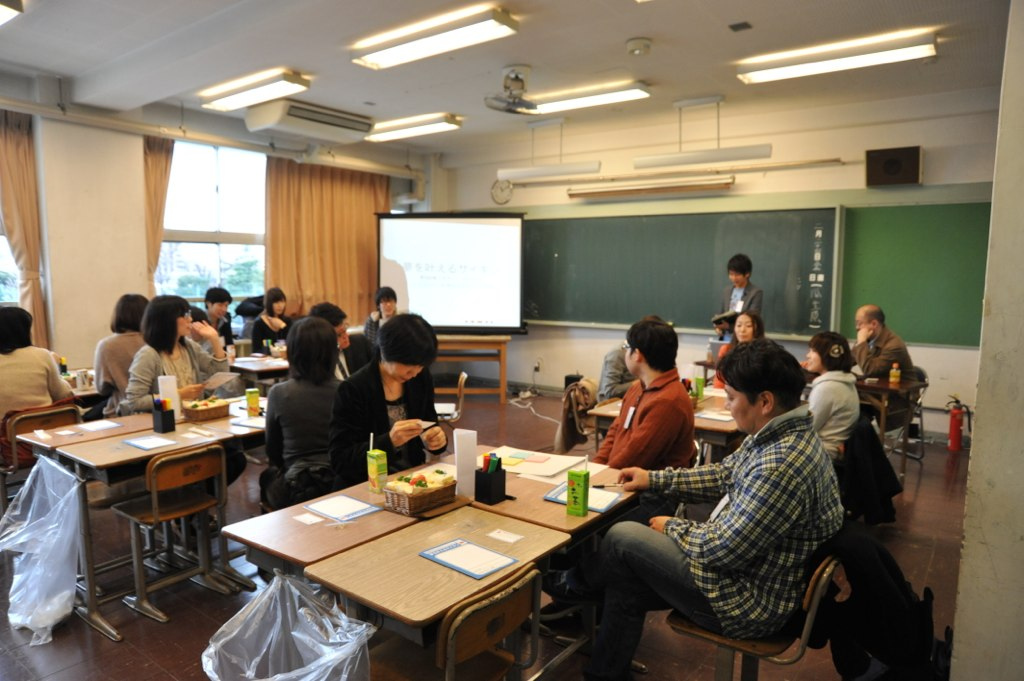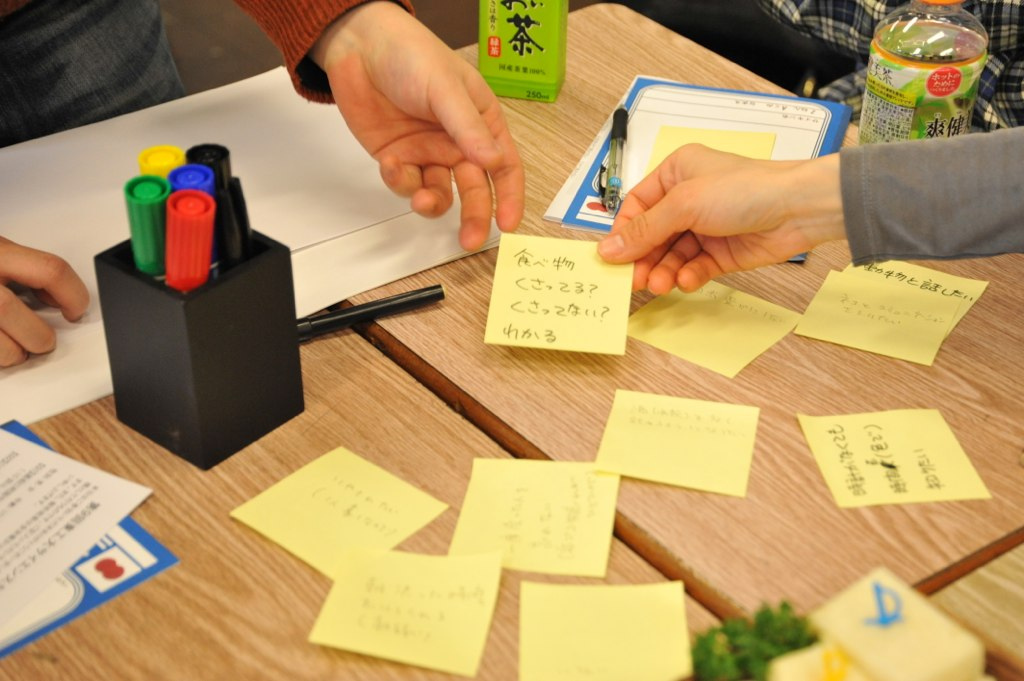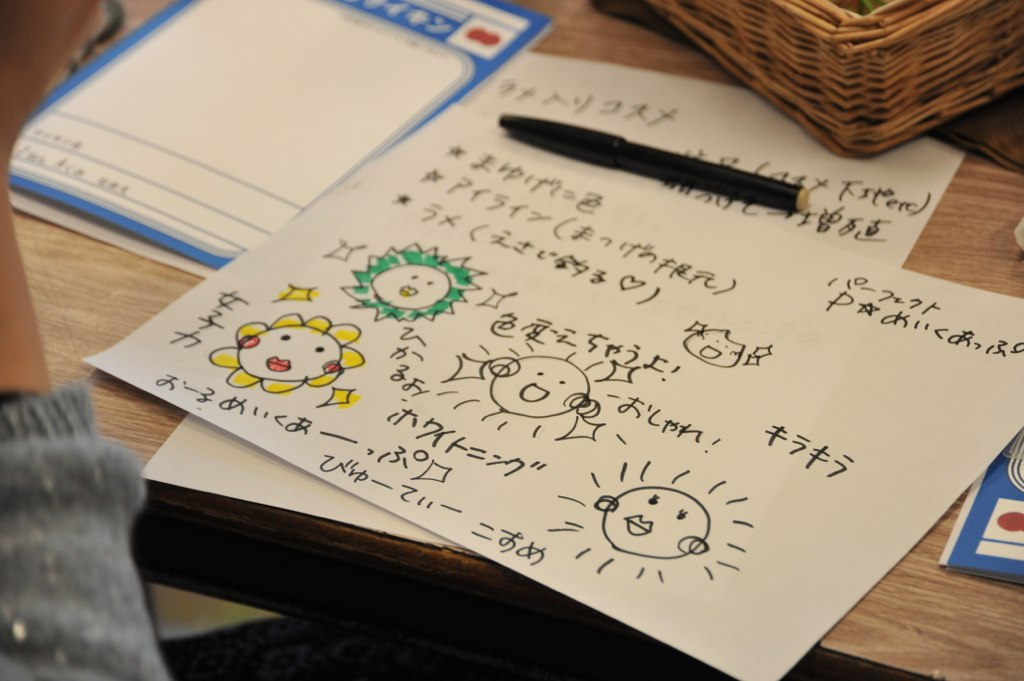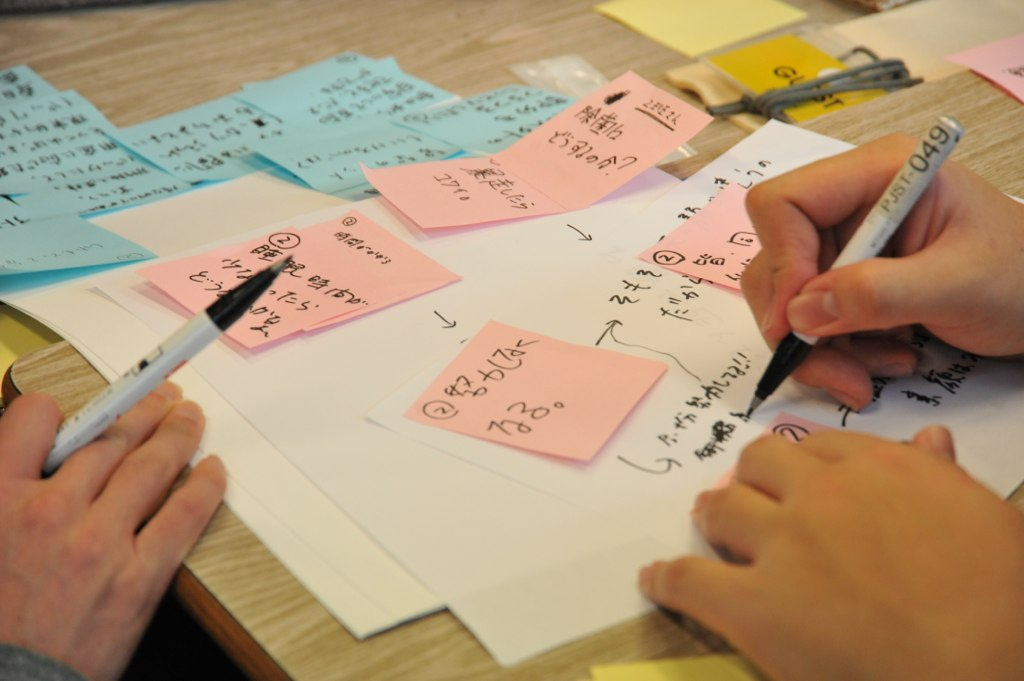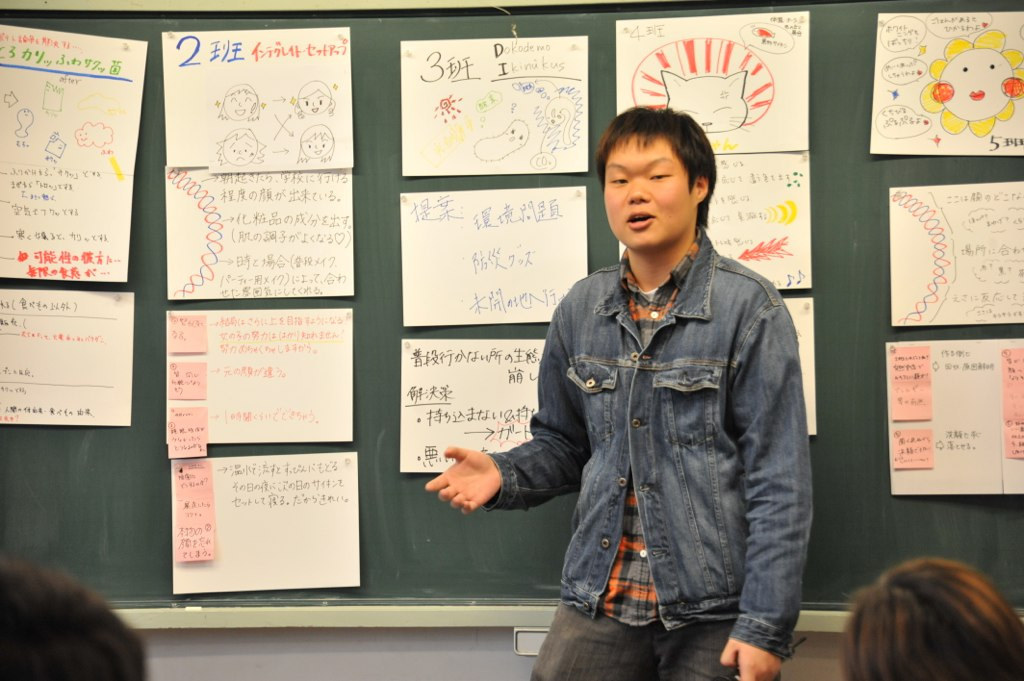Team:Tokyo Tech/HumanPractice.htm
From 2012.igem.org
Ⅰ Introduction
What’s your dream? Sleep tight and sound every night? Don’t want to shiver in cold? Well. Maybe the age of producing the bacteria that will make your dream come true has already come. The key to that is synthetic biology, including iGEM. As you know, synthetic biology is the “ultimate genetic engineering” which means to incorporate a brand new system into an organism that exists already.
Taku Nakayama, and Mai Miura (members of Tokyo_Tech iGEM team) have participated in the science cafe as assistants for the event and supported people who don’t specialize in biology to discuss synthetic biology with researchers. Nakayama and Miura wrote this report from the perspective of the assistants. The science cafe event is a project of Tokyo Institute of Technology postgraduate School’s lecture, namely “Management and Organization of Science Cafe.” Science cafe has been held since 2005 as part of the lecture and organized by students who take the lecture. The material in the event was all written by graduate students (except the presentation speech and PowerPoint). Pictures and photographs were kindly provided from these students. The theme of the science cafe of this year was the relationship between synthetic biology and human society. During the event, the participants were divided into teams of five or six persons and they had some discussions on the following subjects.
1) Design the bacteria that realize any wish you have.
2) Discuss about problems, when the bacteria you’ve designed can really be created.
3) Propose solutions to prevent troubles, when you face them.
The purpose of the science cafe is to provide a chance both for researchers and general citizens to reconsider the relationship between synthetic biology and human society through the discussion of the convenience that synthetic biology brings us as well as the problems.
Ⅱ The flow of the day
2.1)Design the bacteria
In the beginning, staff of the science cafe introduced the essence of synthetic biology to the participants. They had a guest speaker who has specialized in synthetic biology, so the guest gave a short talk about the essence of synthetic biology. Most of participants had little knowledge about molecular biology, so during this phase, we tried to explain in a simple way to help participants to understand easily.
After the introduction of the scientific information, the construction of the ideal bacteria has begun! The participants were divided into teams of five or six persons. Staff of the science cafe attended each team to facilitate the discussion. Then, participants had the 1st discussion; if you were able to design the bacteria that realize any wishes you have, what would you design? Each team was asked to design one ideal bacterium, so the discussion had started from sharing the “wishes” between the team members. First, participants were asked to pick up their “wishes” and write it down on a card as many as they can. Second, participants shared the cards they wrote and put the similar “wishes” in order to categorize in several groups, so that it would be easier to design the ideal bacteria in the team.
Third, participants tried to think about some details of the bacteria as to follow how iGEMers do to construct the plasmid with BioBricks! Members of the team draw the image of the bacteria to show what bacteria can do, and wrote down the list of the imaginably genes in the plasmid. At last, each team had a short presentation of their ideal bacteria.
2.2)Discuss about problems
While listening to other teams’ presentations, participants were asked to write down the comments for the bacteria in two points;
a) How would it be useful for our daily life?
b) What kind of problems would occur if the bacteria were really produced?
2.3)Propose solutions to prevent troubles
After the presentations, the comments were handed out to each team and the 2nd discussion begun; if the designed bacteria could be created, what kind of problems would we have in our daily life? Then participants were asked to think of their own solutions.
Each team then made a second presentation by introducing the possible problems and their way to solve the problems. The participants had deepened their knowledge of synthetic biology, ethical issues and environment issues.
Ⅲ Ideas of participants
The following ideas were presented by the participants during the event.
"Integrate set up"
It’s well-known that doing makeup of women can be a very long procedure every morning. The idea is that daubing some bacteria before you go to bed and the bacteria will do the makeup for you while you are asleep. When you wake up the makeup is already done and you can go to work as fast as you want. This will save a lot more time in morning. Well, one of the other teams commented that “Isn’t the makeup will be the same since the bacteria is the same?” The presenter answered that” The facial appearance of each woman is different so the makeup will also differ from person to person”. Another team commented that “Won’t this make woman stop putting attention on doing makeup?”. The presenter answered that” Women’s passion towards makeup will never fade and have no limit. They always aim to do better”.
"Bacterinyan"
Sometimes it can be very hard to understand the feelings of cats. So, one team came up with the idea that” Put the bacteria on cats which will give out different colors of light after detected the emotional phase of cats”. So the human beings can understand cats’ feelings better. Other team disagreed that the privacy of cats’ would be compromised in this way. Human beings should also be put on bacteria so human and cats can get each other’s information in an equal condition.
Nakayama and Miura brought back these ideas to Tokyo_Tech team, and discussed how to realize them. Especially to “Integrate set up”, we thought out a method to use EGF(Epidermal Growth Factor). If E.coli can make and secrete EGF, combining with UV sensor, we could achieve the idea. Finally, we thought it’s too difficult to realize the idea, because some technical walls existed. There was no doubt that science cafe led us to a good discussion.
Ⅳ Changings of participants after attending the science cafe
In this science cafe, participants were asked to think as iGEMers did in their research. First, they designed ideal bacteria. Second, they discussed about problems. Third, they proposed solutions to problems. These three steps helped them understand synthetic biology easily. Most of the participants to the science cafe have stopped the study of biology since high school and have no idea about what is synthetic biology. Maybe they were confused at first, but after thinking and discussing the ideal bacteria that can make dreams come true they had totally understand the substance of synthetic biology. Watching the participants went back home with great smile, we really thought this event was so worthy.
Ⅴ Through the science cafe
After attending this science cafe, Nakayama and Miura painfully aware that that some knowledge considered general by ones who specialize in synthetic biology can be very unfamiliar to those who do not specialize in this field. Ideas from the ordinary people were more realistic, having strong relationship to everyday life. Science including synthetic biology is to make people’s dreams come true. When you do some new research, you must take some risks. Synthetic biology is little known for ordinary people, because this academic field is very new. To ordinary people, E.coli is thought as some dirty and dangerous things. But as you know, synthetic biology has great possibility to improve our lives. It would be very regrettable, if this new academic field is thought ominous by misunderstanding. So, It has significant meaning to plan these science cafe for ordinary people to think about synthetic biology. Right knowledge about synthetic biology leads to bright future.
Ⅵ Acknowledgements
To write this report, we got great advice. We really thanks to
Prof. Miki Saijo
Prof. Kayoko Nohara
and, Yui Oshima (2009 Tokyo_Tech team member).
[http://sec-titech.jp/ Tokyo Tech Science and Engineering Communication]
[http://tailriver.net/11cafe/ Science Café “ Bacteria make your dreams come true (Yume wo kanaeru Saikin)”] "
"



